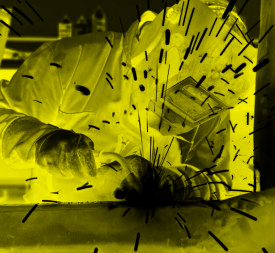Car boss reflects on local industry
 A former leader of the industry has reflected on the death of car manufacturing in Australia.
A former leader of the industry has reflected on the death of car manufacturing in Australia.
Tom Philips ran Mitsubishi Australia from 2000 until 2005, during a troubled period in which the flagship Magna was ageing with no replacement in sight.
The company scored a lot of own goals at the time, suffering under the combined effect of a debt crisis in the vital US market and a scandal in Japan over the company’s systematic cover up of vehicle faults and consumer complaints since 1977.
Mitsubishi was one of the first companies to shut their Australian plants.
Several years later, Mr Philips has looked back on the beginning of the end of the Australian-made car.
“In the early 2000s, when fuel went from 90 cents a litre to $1.40, $1.50 or more that really cut demand for six-cylinder cars,” he told the ABC.
“The cars that we were building, the large six-cylinder family car was not required for families anymore, it became a four-cylinder car.
“Then it became a sports utility vehicle and in more recent years it's become the 4x4 ute, so these vehicles such as the Toyota Hilux and the Ford Ranger are the number one and two selling vehicles.”
The market changed too, with far more options offered to consumers, leaving them spoiled for choice.
Australia has since struggled to produce the full range of cars that buyers expect.
“It's very expensive to change platforms, away from the big sedan, but more importantly whatever you build, you have got to have the volume,” Mr Phillips said.
“You've got to have a minimum of 50,000 to 60,000 vehicles to do it.
“I can't think of a product segment at the moment in Australia where you could do that successfully.”
While Australia tried to fill gaps by bring in foreign-made cars, the high Australian dollar made that unprofitable.
“I think it is very sad to the see the opportunity of the car industry go,” Mr Phillips said.
“But it is one of these things over many years that has become inevitable ... we have just got to make the most of what it is.”
The former car chief said all efforts should be made to get displaced workers into new jobs as quickly as possible.
“My experience at Mitsubishi is that a lot of them retired, they'd been there decades, they got a reasonable redundancy package,” he said.
“That was good, I'm pleased for them.
“There were others who walked out of Mitsubishi on Friday and started work on Monday at another organisation.
“That's the ideal situation and it's the one everyone should try for.
“Then there were others who said; ‘OK, I've got this redundancy, I'm going to have a few months off, I'm going to travel around Australia’.
“They're the ones I'd worry about, because they'll get out of the habits of work and they will find it most difficult to look for work.”
Mr Phillips said workers should not be too picky about where they work next.
“It might not be the same pay level you've had in the past, it might mean you've got to travel an hour to work, but my advice would be to take it and re-establish your career from there,” he said.








 Print
Print